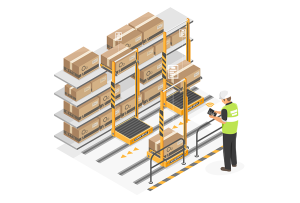 International organisations committed to continuing operation in South Africa have likely tasked their procurement departments with supporting SA’s drive to increase local production within the economy through increased local procurement. But, when operating on an international scale, how can an organisation’s global procurement system support local procurement while still giving visibility into aggregate spend volumes? Furthermore, if they work with SA’s public sector, how do they build compliance with local content regulations into their global procurement systems at the same time?
International organisations committed to continuing operation in South Africa have likely tasked their procurement departments with supporting SA’s drive to increase local production within the economy through increased local procurement. But, when operating on an international scale, how can an organisation’s global procurement system support local procurement while still giving visibility into aggregate spend volumes? Furthermore, if they work with SA’s public sector, how do they build compliance with local content regulations into their global procurement systems at the same time?
Kala Sivasubramanian, a procurement manager from Global Services at Ariba, an SAP Company, discusses the level to which cloud-based procurement solutions can be customised to support country-specific requirements, in this month’s SmartProcurement.
It’s not unusual for a global organisation to operate in almost every country in the world. And it’s equally not unusual for each country to have a different indirect procurement system and related processes, especially for those organisations that grew through acquisitions and mergers.
Initially it may have been easier for local procurement departments to operate independently, but now large organisations are quickly realising that with disparate systems, it is extremely difficult for their executives to have any deep visibility into regulatory compliance, aggregate spend, contracts and policies.
Consequently, many leading global organisations choose cloud-based procurement solutions.
A cloud solution can be deployed on a country-to-country basis, which reduces risk and improves the consistency of the solutions through a controlled, step-by-step global expansion into other countries.
Unique customisation
Many organisations have invested in significant customisations in their legacy procurement systems, such as supporting local procurement, which are typically critical to core business processes, particularly on the local country level, and are often leading-edge advancements that set a company apart competitively.
A cloud-based procurement system can lend itself to a high number of customisations, with a flexibility that supports companies as they transition from on-premises systems to the cloud.
Expert consultants from a global vendor can work with organisations on a country-to-country basis to understand the requirements on a national and local level.
With a robust solution, hundreds of individual requirements across multiple countries can be addressed, with thousands of pages of custom documentation to ensure the smoothest move to the cloud.
The best approach to worldwide procurement and compliance
An inability to track and monitor the effectiveness of purchasing policies globally hinders the ability of companies to maximise profitability and retain a competitive advantage.
A worldwide implementation of a cloud-based solution can streamline indirect procurement processes across multiple continents and countries. It can provide a significant reduction in capital costs by eliminating the need for companies to host and maintain their own procurement servers all over the world.
And with skilled consultants from a trusted vendor on hand to help support local divisions, companies can rest assure that the move to a global, cloud-based, indirect procurement solution will be safe, efficient and will support country-specific procurement requirements.
For more information on cloaud-based e-procurement solutions contact Ariba.

























